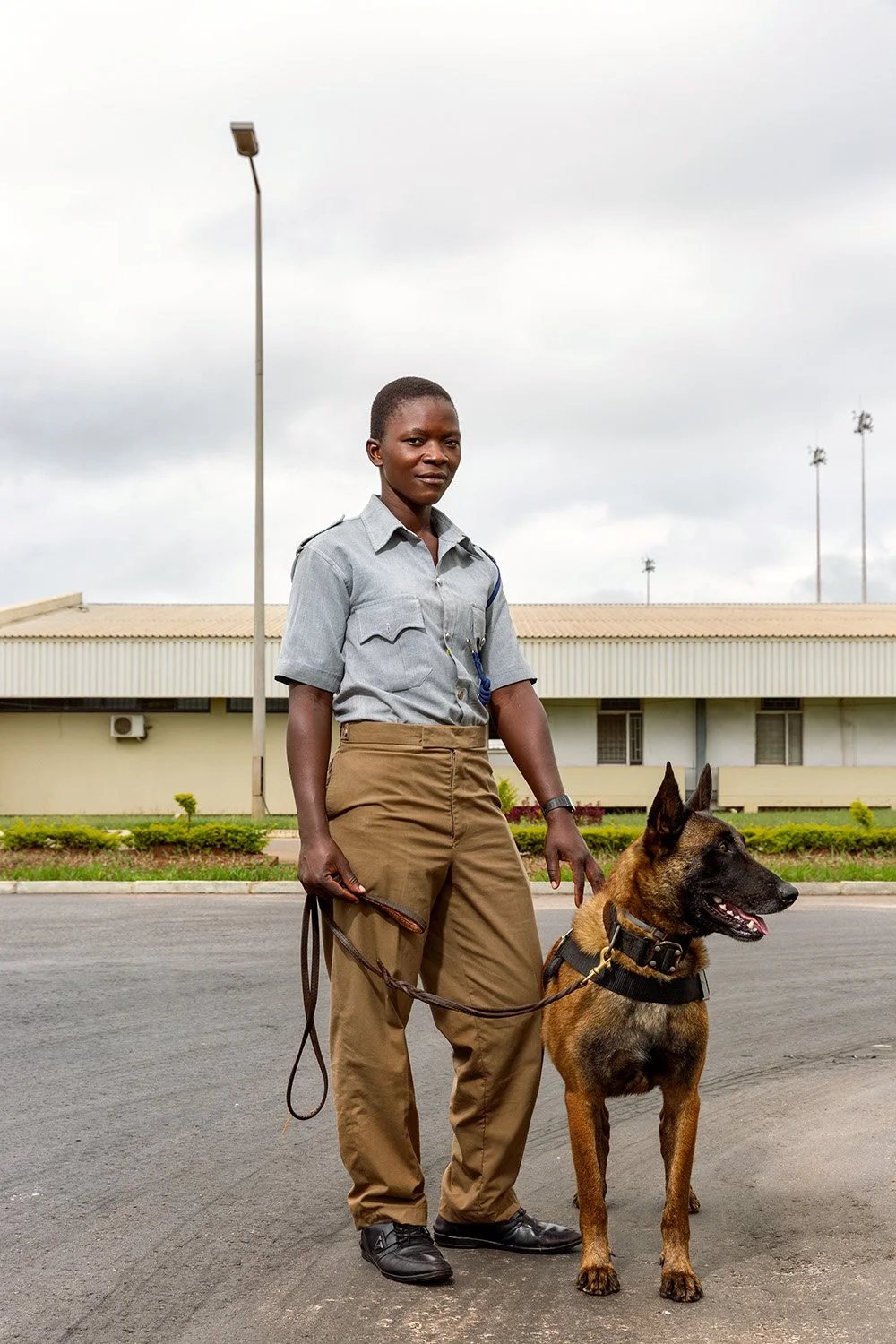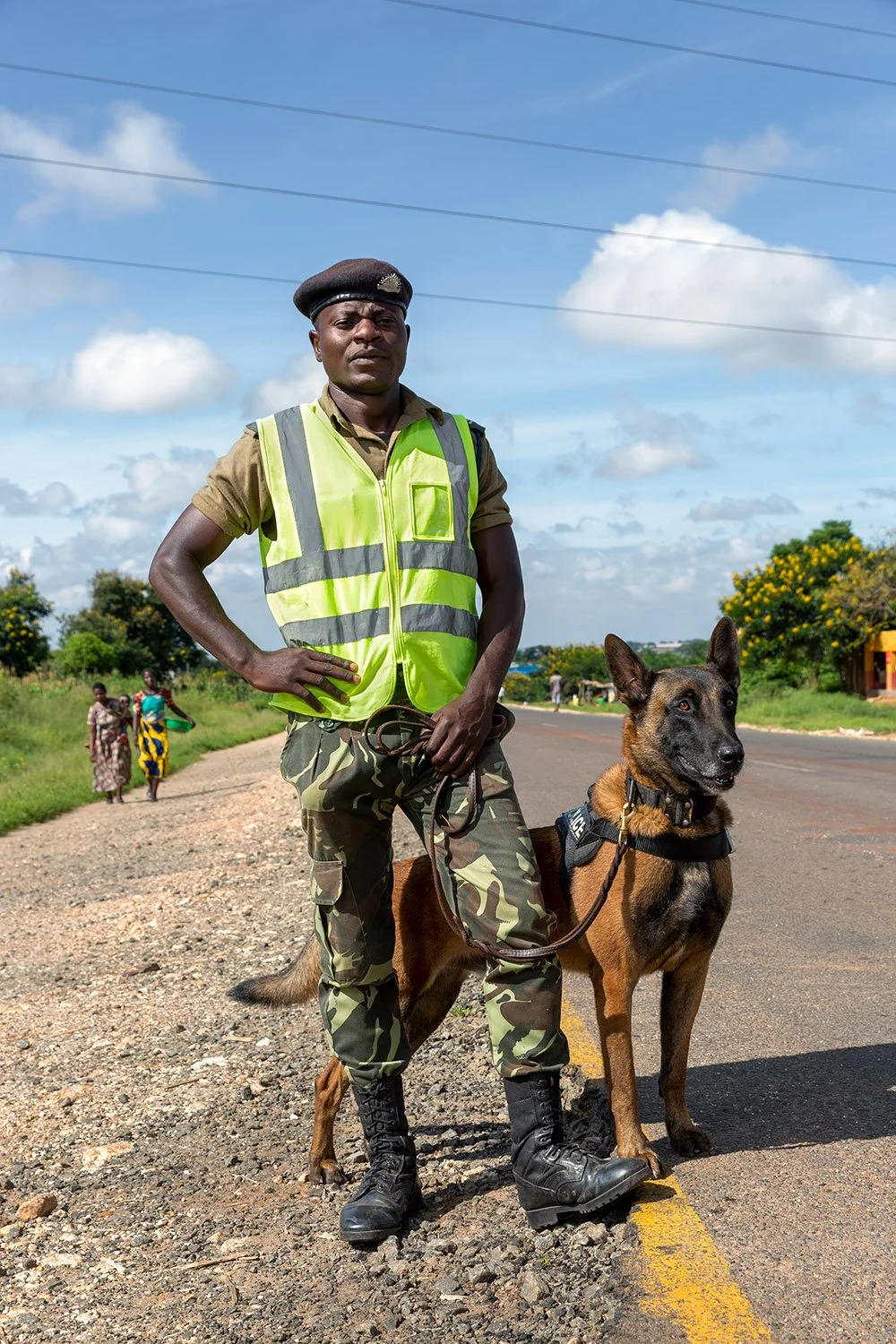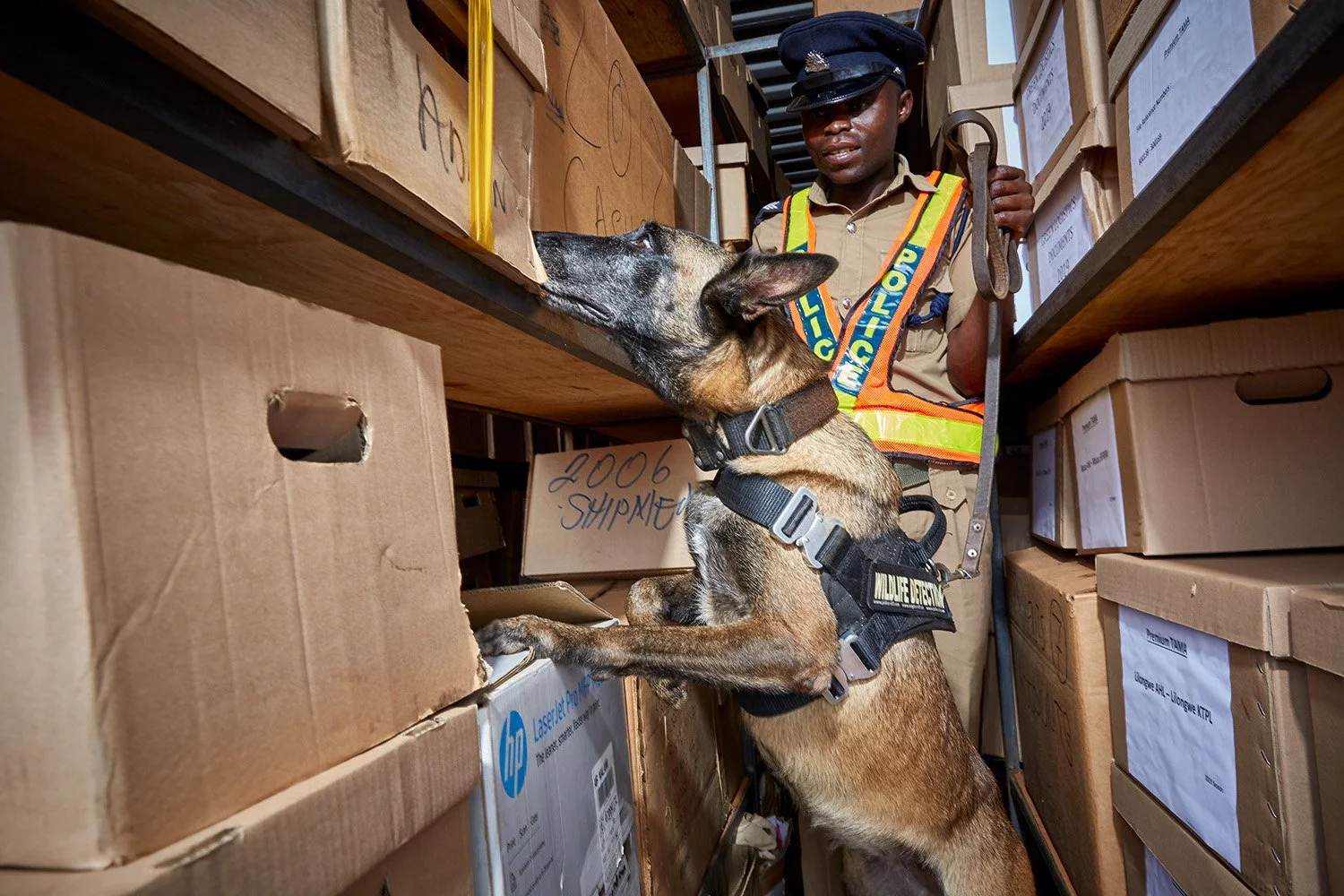The Independent
Stop The Illegal Wildlife Trade: The detection dogs sniffing out wildlife crime
written by Emma Ledger
Until an illegal wildlife trade report was published in May 2015, Malawi’s role in one of the world’s largest transnational organised crimes was largely unknown.
The landlocked southeast African nation – bordered by countries with large wildlife populations – was revealed to be a major trafficking hub for ivory, pangolin scales, rhino horn and other illegal wildlife commodities.
Malawi’s weak identification and enforcement systems were being systematically exploited by criminals to export their products to China, Vietnam and other demand countries.
In response to the report, the country’s first Wildlife Detection Dog Unit (WDDU) in 2018. Sitting within the Malawi Police, the WDDU is based in the capital Lilongwe’s airport but covers trading posts and the other airports.
Yet before the WDDU could even begin its intensive training programme it faced big challenges.





